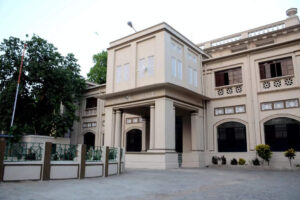
What You Need to Know Before Starting Your PhD in Commerce in India
A PhD in commerce in India is a major academic achievement in business, finance, and economics. Scholars can gain deep research capabilities, theoretical knowledge of complex commercial phenomena, and tools for policymaking, education, and corporate leadership. The blog guides interested researchers with programme structure, funding, specialisations, and challenges. SRM University Delhi-NCR, Sonepat, is a popular choice for candidates who are looking for a PhD in commerce in India and nearby regions because of the research-based course module, expert faculty, and supportive infrastructure.
Understanding the PhD Journey
A PhD is a research-based degree with a focus on developing original contributions to knowledge in commerce, like accounting, international trade, and corporate finance. A PhD program in India usually takes about 3 to 6 years and includes coursework in research methodology, formulation, execution, and defence of a doctoral thesis. MPhil and MBA focus on practical and professional skills, while a PhD generates new knowledge via scholarly research.
Research Interests and Specialisations
Candidates should pursue their research interests in fields like taxation, financial markets, and e-commerce to apply for a PhD in commerce in India. Popular specialisations like accounting and auditing, international business, corporate governance, banking, and insurance are also available. Aligning research goals with faculty expertise is crucial for success, as faculty members at SRM University Delhi-NCR, Sonepat are actively engaged in cutting-edge research in different sectors.
Admission Requirements
Candidates for a postgraduate degree in commerce, economics, and related fields. Some universities relax this requirement for SC/ST/OBC candidates. Entrance exams like UGC-NET/JRF and SRM University Delhi-NCR, Sonepat’s PhD entrance exam are valued. A strong research proposal, which shows the research problem, objectives, methodology, and expected contributions, is crucial.
Financial Considerations
The cost of a PhD in commerce in India varies. Public institutions charge reduced fees, and private universities like SRMUH offer structured fee plans. SRM University Delhi-NCR, Sonepat, offers research fellowships and teaching assistantships to cover the tuition fees and stipends. Living costs come up with accommodation, transport, books, and conference travel, which are relatively cheaper in Haryana and other nearby areas.
Choosing the Right Institution
It is important to opt for factors like faculty expertise, research facilities, funding availability, placement support, and institutional reputation before selecting a university for a PhD in commerce. SRM University Delhi-NCR, Sonepat, offers a well-structured programme with interdisciplinary research, expert supervision, and state-of-the-art facilities. Access to dedicated mentors, research software, digital libraries, and global collaboration can increase the overall PhD experience.
Balancing Work and Study
PhD students must have strong time management skills to meet deadlines, handle data collection, and manage the coursework. Many universities offer part-time work or teaching assistantships. Maintaining a work-life balance is crucial due to the intense demands of doctoral research, which requires realistic goals, breaks, and mental well-being.
Networking and Professional Development
Building a professional network is crucial for academic growth and career opportunities. Attending conferences helps scholars to stay updated and connected. Top universities for PhD in commerce in Delhi conduct academic events, providing platforms for idea exchange and publication. Engaging with academic and industry professionals guarantees that research is relevant and opens different career paths.
Challenges and Expectations
PhD students can face common challenges:
- Isolation
- Research blocks
- Time pressure
- Limited funding
When you are aware of these, it helps students to be properly prepared. Students must set realistic expectations for progress and outcomes. Resilience and adaptability are considered to be crucial to successfully completing a PhD in commerce in India.
Conclusion
This blog discusses the key elements of pursuing a PhD in commerce in Haryana, Delhi, and India. It motivates interested PhD candidates to opt for a satisfying academic journey and get a strong academic environment. Moreover, the college is the best choice for students who wish to access experienced faculty and focus on innovation in Delhi and nearby regions.
FAQs
1. What are the eligibility criteria for a PhD in Commerce in India?
To enrol in a PhD in commerce in India, you need a postgraduate degree in commerce and related fields. Moreover, it is important to have at least 55% marks and a qualifying score in entrance exams like UGC-NET and the PhD entrance test of the university.
2. What is the duration of a PhD in Commerce in Delhi or Haryana?
A PhD in commerce in Delhi or a PhD in commerce in Haryana takes 3 to 6 years. This depends on the nature of the research, full-time or part-time enrolment, and institutional policies.
3. Is SRM University Delhi-NCR, Sonepat, a good choice for a PhD in Commerce?
Yes, SRM University Delhi-NCR, Sonepat is a recognised institution that offers a detailed PhD in commerce in Haryana, which is closer to Delhi. It provides strong faculty mentorship, funding support, and access to national and global research platforms.
Source link



